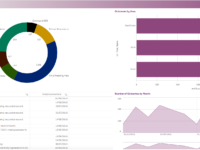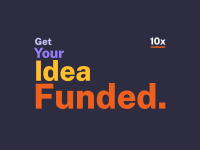The Ministry of Possibilities is a virtual ministry created to incubate and solve the systemic impossibilities of government.
It works by creating time-bound departments experimenting together to ask impossible questions and disrupt the conventional systems with leapfrog solutions that are yet to be explored
Its focus areas & mandate are:
To IDENTIFY impossibilities
To INCUBATE virtual, timebound departments/teams to solve and explore the impossibilities
To EDUCATE and train on the mindset of…
Innovation Tag: Experimentation
Who gets to set the direction of travel has been identified as a key concern of challenge led policy. Utilising an online crowdsourcing tool, the challenge prize Solution 100 provided a novel approach to addressing this question. By crowdsourcing the challenge formulation, the competition organisers built legitimacy for the prize along with a deep understanding of the challenge that was to be addressed. The chosen method combined knowledge gained through crowdsourcing and expert panels.
What if you were given $100 that you could use to support local candidates of your choice running for office in your community? In Seattle, more than 480,000 residents were given four $25 vouchers they could give to candidates running for local office. The goals of the program are to increase the number of residents donating to local campaigns and to encourage residents to run for local office.
CORO, Co-lab is the result of an ambitious vision of creating innovative collaborations. The local innovation platform creates new sustainable solutions to complex societal challenges. It takes place in cross-sectorial cooperation’s between public organizations, academia, civil society and businesses across industries. Through the activities, new sustainable scalable solutions are developed, using the entire area of Roskilde as a unique real-life test platform with demonstration facilities.
Work 2.0 Lab is a new collaborative working and learning environment. It is available to all agencies and civil servants in government and other organisations involved in the 2-years experiment. The purpose is to promote better, higher quality ideas, solutions and decisions on cross-cutting matters outlined for example in the government program. Work 2.0 Lab provides the structures and platforms (environments, spaces, networks, methods) for collaborative learning needed to work together.
Insight Bristol is an interagency analytics hub between Bristol City Council and Avon and Somerset Police. Its core creation is a database of families' risk and vulnerability indicators, together with targeted risk modelling, which has been embedded into operational practice. This has created a fundamental shift in public sector working by developing a proactive approach to early intervention, saving millions of pounds of public money and improving outcomes for children and families.
Case Study
Using behavioural insights to increase patient engagement with validation of hospital waiting lists
Administrative validation of waiting list is where patients are contacted by hospitals in writing to confirm if they still require hospital care or wish to be removed from a waiting list. Many patients do not reply to validation letters. This innovation involved a collaborative redesign of the validation letter, the application of a range of behavioural insights to letter design and testing through a randomised control trial.
10x is a stage-gated internal investment program for the United States government, modeled on modern venture capital practices, that funds the exploration and development of new product ideas, sourced from civil servants, to significantly improve how the government uses technology to serve the public good.
The project was inspired by the need to promote coding in Greek primary education. It fostered the exploration of the actual use of digital technologies in the Schools, the way new technologies could transform School classrooms into real labs and the level of impact in the improvement of the digital skills of teachers and pupils.
Organisational development in a municipality within a framework set by the municipal council is not new. However, a local authority can still be innovative in how it designs such development and the role employees play in it. In Nijkerk (approx. 43,000 inhabitants), this has led to an organisation made up of 28 self-managing teams that come directly under the authority of the municipal clerk. Nijkerk went through a process where employees and the development of their talent came first.



